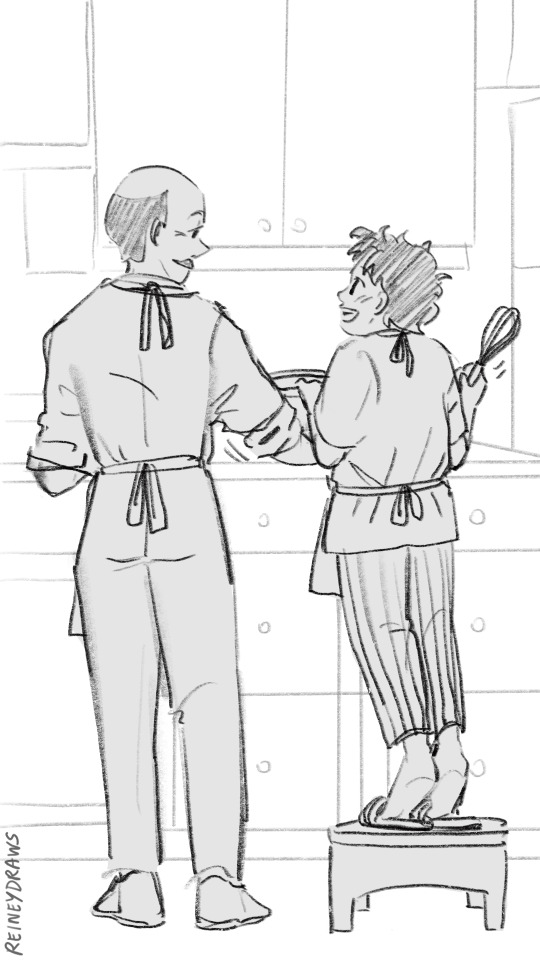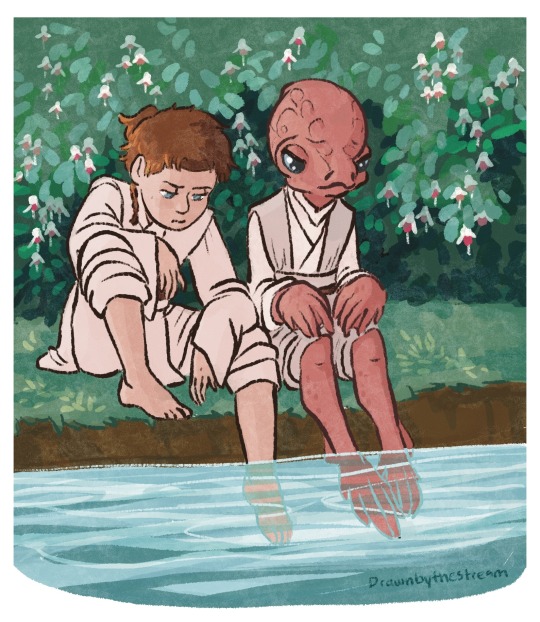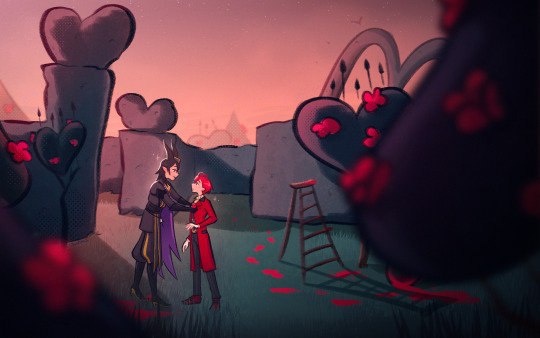#saving energy
Text
"The search has intensified for alternative energy-saving technologies for heating and cooling that don’t run on fossil fuels.
Now, by mimicking a desert-dwelling chameleon, Chinese scientists have developed a cheap energy-efficient, cost-effective coating on houses.
They say the new material could keep buildings cool in the summer or warm in the winter without using additional energy.
“Many desert creatures have specialized adaptations to allow them to survive in harsh environments with large daily temperature shifts,” said Dr. Fuqiang Wang, author on the paper describing the invention and researcher at the Harbin Institute of Technology. “For example, the Namaqua chameleon of southwestern Africa alters its color to regulate its body temperature as conditions change.”

Pictured: A Namaqua Chameleon
...Many systems, such as cooling paints or colored steel tiles, are only designed to keep buildings either cool or warm, and can’t switch between modes.
Inspired by the Namaqua chameleon, Dr. Wang and his colleagues wanted to create a color-shifting coating that adapts as outside temperatures fluctuate...
When heated to 68 degrees Fahrenheit, the surface began to change from dark to light grey. Once it reached 86F, the light-colored film reflected up to 93% of solar radiation.
“Even when heated above 175 degrees Fahrenheit for an entire day, the material showed no signs of damage,” reported Dr. Wang.
The team then tested it alongside three conventional coatings—regular white paint, a passive radiative cooling paint, and blue steel tiles in outdoor tests on doghouse-sized buildings throughout all four seasons...
In summer, the new coating was significantly cooler than the white paint and steel tiles, according to the findings published in the journal Nano Letters.
“During spring and fall, the new coating was the only system that could adapt to the widely fluctuating temperature changes, switching from heating to cooling throughout the day,” Dr. Wang added.
The researchers say that the color-changing system could save a “considerable” amount of energy for regions that experience multiple seasons, while still being inexpensive and easy to manufacture."
-via Good News Network, September 21, 2023
#chameleon#extreme heat#climate adaptation#architecture#green architecture#saving energy#climate crisis#global warming#sustainability#solarpunk#good news#hope#biomimicry#air conditioning
472 notes
·
View notes
Text
It was a while ago I read this tumblr post, which still comes to my mind every time I think about the future. It was explaining in an insightful way, how it's not a violent revolution that will bring forward the better future, it's slow and consistent change of our everyday life, of our habits, the resources we use and the way we go about achieving things. If we're hoping for a future where we're not dependent on capitalism, not destroying the environment, not robbed of our labour for a fraction of the money we need to survive, we'll have to slowly die capitalism out, by changing our own living habits.
If a sudden shift happened, and capitalism stopped functioning overnight, for most of the people that would be unsurvivable, all of the resources, food, jobs and life-sustaining services would stop. And we can't afford that. But, if instead we slowly backed away from it, generated alternatives, created communities and systems that can sustain us without capitalism, then it would only be a matter of time before capitalism is fully dead, with everyone alive, everyone safe. And this slow shift would be able to happen through decades and generations, and it would still be a great positive shift, with a future in sight. Capitalism offers no survivable future, seemingly ready to last as long as it can by destroying whatever is left from the environment and people alike, for the benefit of the few.
So let's see how we got here, or how I feel, looking back, we got here.
People used to be less dependent on a global system of distribution of resources, even just a 100 years ago; survival and trade skills were passed down in families and communities, and people would be able to make inside of their home and communities, a big percentage of things that we today would buy at the store. In those times there was no other way to gain those resources but by relying on people's knowledge, skill and labour. The future, however, promised a more convenient and easy way to gain all those resources, because they would be made by machines, and thus cheaper. And things kept coming in cheaper, for no visible labour required; you just needed to have money to buy them, which not everyone had.
But this too, would change as cheaper and cheaper things arrived, and it became less convenient to make those things yourself or within your community, and more convenient to just trade some money, and have it all be done for you. For people then, it could mean less energy spent on survival, more leisure time, more health and longer lifespan – except, it didn't, because the jobs that they needed to earn that money, tended to take all of that away. So still, there was a lot produced at home or within the communities, independent workshops and artist shops, so people within in the community would benefit from each other, instead of benefiting some faceless global corporation.
And now we know where this went; conveniences started lining up to the point where not having a certain convenience meant that you were below the norm. They sometimes got mixed up with inconveniences, but those inconveniences were 'necessary'. For instance, pollution became necessary, highways, huge trucks delivering goods, the oil industry, destruction of forests and habitats, exploitation of the poor, extinction of certain animals, and by the end of it, the climate change.
When I was born, my mother and grandmother still attempted to pass some skills that their mothers taught them; I remember being taught how to knit at the age of 5, the activity which at that age, seemed awfully tedious and was soon abandoned, and my grandmother showed me how to crochet, which I also soon forgot. After the age of small child, they both looked at the world, shrugged and decided 'she won't need it', and they have stopped trying to teach me any skills of the sort.
Buying things, rather than making them, already seemed the norm. People were readily telling you that you are stupid for trying to make something, when you could get it in the store, for very little money. Having animals at home, or growing food, was slowly getting replaced by buying it cheap, or buying tons of snacks, and biscuits and cakes, which now you could get pre-packaged, readily available to consume at your leisure. If it brought lots of waste from packaging, plastic and other non-degradable materials, nobody cared, it was new, convenient, and available, and we would have it, and live luxuriously.
Soon nobody seemed to talk anymore, about what we used to do before we were able to buy anything we could possibly need at the store; nobody would tell me what were the names of the native plants, and which ones I could make into teas, I was instead told to change my priorities because this kind of behaviour will never get me any money. All of my efforts to do arts and crafts, to forage, to make things from scratch, to paint and invent stories, were called frivolous, because they would not generate the one thing that was now the only thing worth generating: money.
It simplifies things a lot, instead of making various, interesting, self-made and beloved items that would all require different knowledge and skills, a human is now required to put all of their talents into 1 thing that would generate revenue, and then do that one thing, for entire life, and this would present a normal life on earth now. This was how it was presented to me, and it was before I found out that keeping one job for the whole life, was no longer an option, that changing jobs was the norm and was not often volountary. I did not, however, understand how doing that one job would not make someone go insane, and nobody was explaining that to me, it was just, the life.
So while the world was shifting into this new concept of 'make nothing but money', the first millionaires started to appear, the billionaire was not even conceptual, having 1 million was equal to being the richest person on the planet. That is pretty laughable to us now. Back then, it felt like heading into a new exciting world, but we know better now. We understand that lives consisting of a job and thousands of conveniences, easily sends a human being into a depression. We understand that relying on a job to keep us alive, and having constantly to compete with everyone else unemployed, to get one, has brought us to a place where others are a competition, not a resource, not a community. We understand that living in a world where we have to market ourselves as a resource, causes a lot of us to lose self confidence and the feeling of value, while it sends others into obsession with becoming popular, gaining perceived value, gathering a public image, that would later prove to be profitable.
By this time, unknown to us all, this life of convenience and consumerism had caused immense damage to the environment, and we were mostly kept in the dark about it, so we wouldn't complain. We learned about the holes in the ozone layer, but were told it was merely the fault of certain aerosols, and the rest of the stuff was fine. We would in the future get to watch oil spills and devastation of animal habitats, never fully connecting it to corporations who were responsible. Acid rains were mentioned, but we were told they caused by the new pesticides, but it was the fault of the farmers, they said, who simply used too much of it. Now we know it was the exhaust fumes from cars, factories and coal power plants. Climate change was barely mentioned, and even less believed in. And now, we can no longer ignore it.
So, what do we do in order to progress? We obviously can't go back to where we came from, but we are now made aware that the amount of energy and resources we're consuming, and the amount of toxic waste we're creating, will devastate the planet to the point where a big chunk of it will become inhabitable, millions of both people and animals, will end up dead if we keep going. But wait! How can I blame the people for any of this, when it's obviously the corporations that are doing the most damage, lobbying and hiding what is in actuality going on? And you're completely correct, I would have to say, it is corporations, and for the most time, we really didn't know the extent of damage they were doing. So why are the corporations exactly doing all of this? For profit. And who's giving them all that profit? Well, the consumers, by consuming all of the oil, energy, goods, resources and products they make. So how do we take down the corporations? By not giving them any of the profits. But, we can't do that in the current state of the world, we need cars, and food, and that food to be shipped and delivered from the distant lands, and we are all depressed and if we can't at least have our favourite snack, food we're used to, little treats and pieces of clothing that make us happy, we no longer feel like we can live!
And that's where the slow and meaningful habit shift comes into place. The thing is, we're not the same people we were 50 or 100 years ago, we don't have the skills of our ancestors, we're not used to producing our own resources, we are out of touch with nature, and we struggle to find our communities and feel valued. But we also have, so much more information and education at our fingertips. We have more scientific data, we have more access to information, we have more people creating public resources, we have the experiences and wisdom of generations back, only waiting for us to reach out, to tap into what the humanity knew centuries ago.
We're made to do various activities! We thrive on changing our habits by season, even by weeks. We thrive in communities, with no competition for resources. We love creating art, music, crafts and beauty just for fun, and the communal value of it cannot be compared to money. We don't like being reduced into human resources or labour force, we don't like repetitive activities that don't produce results or seem nonsensical, we don't like to be stuck within one room for most of the day, we don't like being replaced when we stand up for our rights.
I can already see a lot of people valuing all of the things on this planet that cannot be exchanged for money, but have intricate value in our lives and experiences; wild animals, plants, forests, environments and ecosystems filled with life, little stories and jokes we tell to each other, making crafts just for the sake of making things, creating their own clothes or fabrics, learning how it was done in the past; growing food, foraging, herbalism, basketry, making of soap and fixing things on our own, visible mending, connections and building communities, we are remembering it's what we want and need, and we're not going to build it the way it was in the past; we're going to do it our own way, with the knowledge and experience we have, the way we think is the best. All we need to do is start small. Do one little shift that takes you one tiny step away from consumerism. Add one little enrichment in your life that doesn't have anything to do with money or purchasing. Find little ways to save on energy that doesn't make any dips in your happiness or comfort levels, that only requires a little bit of your attention or focus to do.
Big shifts are not sustainable, and are not survivable, but we didn't get here by a big shift; we got here by a series of small, almost invisible shifts that we barely felt were happening, until it was our new normal. We can do small, painless shifts too, but this time, they're going to be conscious, purposeful, with thoughts of the future behind it, and they're going to come from us. Not the corporations, not the money holders, but us, pushing the future to the direction that we want.
#anti-capitalism#essay#long post#capitalism#environmentalism#climate change#future#environment#saving energy#leaning away from capitalism
154 notes
·
View notes
Text
Recently I was talking to a friend about vampire energy, which is the electricity used by many devices to maintain a standby condition. Many of these devices use small amounts of electricity even when sleeping or turned off. Devices with clocks and internal thermostats to maintain a specific temperature as well as many “smart” electronic products use vampire energy. My friend was interested in knowing how much power is used worldwide for this vampire energy, so I went looking for a number. According to the article below, “Studies from the Natural Resources Defense Council (NRDC) have found that more than 100 billion kilowatt-hours are wasted every year because of vampire energy, costing American consumers over $19—about $165 per US household on average—and 50 large (500-megawatt) power plants’ worth of electricity.” “Cutting vampire energy consumption in half, in the US alone, would be the equivalent of turning off the carbon emissions of a medium-sized country, like Jordan or Lebanon.” The article points out that “at the industrial level, 21 percent of all electricity consumed by buildings is wasted”. Most of us are not in charge of industrial facilities, but when at work we can at least turn lights off and unplug our phone chargers before we go home. Other things to consider:
Plug electronic devices into an easily-accessible power strip so that you can turn the power completely off at night or when you are not using the device. Choose settings that put the device into a low-power sleep mode after a short period of non-use.
Unplug devices such as digital clocks in a guest bedroom. You can plug them back in when guests are expected.
Don’t leave chargers plugged in when they’re not actively charging your device. All those smartphone, laptop, and personal care device chargers use electricity even when not connected to the item they are intended to charge.
135 notes
·
View notes
Text
This is very interesting.
Heat fabric.
2 notes
·
View notes
Text

I have to admit…
…that I actually like Ted Lasso - and Roy Kent.
…that I snore rarely. There are not often wild animals to scare away.
…that I became quite a couch potato. And I'm not even a vegan.
…that I’m not always right. Only most of the time.
...that personal freedom is overrated. Tells you a twice married man.
…that I'm not consuming enough vitamins. Obviously I need more Apple.
...that I support political correctness. But in its original meaning.
...that I'm dropping voluntarily out of the race for Sexiest man alive.
...that saving energy is a cheap excuse for being lazy.
...that I didn't confess for a very long time. Is there some volume discount?
#thoughts#aperçu#funny#admitted#ted lasso#roy kent#snoring#wild animals#couch potato#vegan#freedom#married men#vitamin#apple#political correctness#sexiest man alive#saving energy#being lazy#confession#volume#discount
3 notes
·
View notes
Text





jason is a grandpa's boy and u cant take this away from me!!! they cook together, they discuss literature together, and when jay comes back, they clean their guns together haha. ofc they celebrate their birthday together too! 😌
✨️🎂 hbd jay & alfie 🎂✨️
#jason todd#alfred pennyworth#batfamily#batfamily fanart#dc#dc fanart#batman#red hood#dc red hood#they have one of those relationships where jason outright says he loves alfred the most and alfred refuses to say he has a fave grandkid#but it's kind of just concensus that it's jason cuz he's the only one allowed in the kitchen#i am also a heavy believer in the hc that for a while there jason wouldnt meet up with anyone but alfred#and theyd meet for tea and stuff outside the manor#i love those fics#i was gonna draw an in-between angsty one where alf has a picnic by jay's grave with tea and cake for two but i dont have the energy 😅#i was also gonna draw a red hood and agent A one with the guns they were cleaning but again: no more energy 💀#mb i'll save that one for later. i still love the idea so much. :')
23K notes
·
View notes
Text
How energy saving affects the environment
Introduction
In the context of increasing environmental concerns, the implementation of energy-saving technologies becomes one of the most important steps towards achieving sustainable solutions. Such an approach not only provides economic benefits but also represents one of the crucial aspects of responsible management of natural resources. Understanding the impact of energy conservation on the environment is of paramount importance in creating a healthier and more sustainable planet for future generations.
A fundamental aspect of energy conservation is its direct influence on reducing greenhouse gas emissions and preserving natural resources. This article discusses specific measures and practices in the field of energy conservation that can mitigate the harmful effects of human activities on the environment. It also evaluates the benefits associated with the adoption of energy-efficient technologies while identifying the challenges encountered in implementing these methods. Based on the analysis and discussion of energy-saving methods, the article underscores the importance of prudent energy consumption and the necessity of collective efforts to protect the environment.
Impact of energy saving on the environment
Energy conservation plays a key role in reducing greenhouse gas emissions, including carbon dioxide (CO2), methane (CH4), nitrogen oxides (NOx), and others, which significantly impact the climate. By reducing energy consumption, particularly from sources that emit greenhouse gases, we contribute to reducing atmospheric pollution and mitigating the consequences of climate degradation. The role of energy conservation in reducing emissions of CO2, CH4, and other gases encompasses various aspects. Energy-saving technologies and methods, such as using renewable energy sources (wind, solar), efficient heating and cooling systems, and advanced production technologies, significantly decrease greenhouse gas emissions into the atmosphere. Implementing these methods helps reduce dependence on fossil fuels and diminish emissions, contributing to environmental restoration. Additionally, one cannot ignore the impact of global warming on ecosystems and climate. Reducing greenhouse gas emissions through energy conservation directly affects slowing down global warming, contributing to ecosystem preservation, reducing desertification, glacier melting, and excessive climate change, thereby promoting biodiversity conservation and the planet's health.
The benefits of energy conservation extend beyond reducing greenhouse gas emissions, exerting a positive influence on the environment. Efficient energy use also reduces resource consumption, leading to a decrease in the extraction and consumption of natural materials like coal, oil, and natural gas. This reduction helps mitigate ecosystem destruction and the damage to natural habitats associated with the extraction and processing of these resources. Furthermore, energy conservation contributes to improving air quality by decreasing energy consumption from fossil sources, reducing emissions of harmful substances such as sulfur and nitrogen compounds, which positively impact the health of humans, animals, and natural ecosystems. Additionally, reducing energy consumption contributes to waste reduction since reduced production and consumption lead to less need for processing and disposal, thereby reducing the negative impact on nature and ecosystems.
Significant roles in reducing energy consumption are played by the use of LED lighting, solar panels, energy-efficient devices, and technologies. For instance, transitioning to LED bulbs reduces energy consumption for home and office lighting. Moreover, installing solar panels and utilizing renewable energy sources substantially reduces dependence on fossil fuels, positively impacting ecosystems and natural resources. Also, reducing waste and recycling materials are crucial for energy conservation. Implementing measures to reduce waste and recycle materials lowers energy expenditures for producing new goods. The everyday practice of material recycling involves reducing environmental pollution and decreasing greenhouse gas emissions associated with production processes. Instilling energy-saving habits, such as turning off electrical appliances in standby mode, effectively utilizing thermal insulation, and using public transport, helps to reduce energy consumption and, consequently, improve the environment.
Conclusion
In conclusion, energy conservation plays a critical role in addressing the environmental challenges of the modern world. When viewed through the lens of resource conservation and reducing the negative impact on the environment, it becomes evident that energy conservation is not merely a cost-saving strategy but also an effective tool for creating a sustainable and healthy planet for future generations. A central aspect of energy conservation lies in its ability to reduce greenhouse gas emissions and conserve natural resources. Analyzing specific measures and practices in this area, it becomes clear that the utilization of energy-efficient technologies holds immense potential for reducing the adverse impact of human activity on the environment. However, despite the significant benefits associated with energy conservation, challenges arise in its implementation. One such challenge is the need to alter habits and introduce new technologies, necessitating concerted efforts from society, businesses, and governments. By analyzing and discussing energy-saving practices, the importance of conscious energy consumption and the need to combine efforts to preserve the environment become abundantly clear. The successful implementation of energy-saving measures will be a significant step towards a more sustainable future, where the conservation of natural resources and environmental stewardship will be key priorities for society as a whole.
By Kanat Yeslyam and Dmitriy Milyukov
1 note
·
View note
Text
Construction processes can have a major impact on the environment. However, in recent years, more companies are becoming more conscious about their carbon footprint and taking steps for sustainable building.
0 notes
Text
why do I value power naps so much

(oh, to be Anna)
Mayo Clinic says:
The benefits of napping including: Relaxation. Reduced fatigue. Increased alertness. Improved mood. Improved performance, including quicker reaction time and better memory.
But to me, it might just be a way to take a break from this harsh world, you know?
Who knows, maybe I'll wake up in 2013 and realize that my current life was just nightmares that never actually happened :D
0 notes
Text
So normal about Jon being like I don’t remember what you looked like but the man who let you die is going to suffer for what he did to you. If only Sasha coulda seen that.
So normal about Jon being like you died hating me and wanting me dead but I’m still gonna make sure this man knows I’m ending him in your name. Sure wish Tim coulda seen that.
So normal about the fact that everyone believed Jon was losing his humanity but no one got to see the ways his love and compassion for the people he lost or who hurt him drove him to that final moment.
So normal about the fact that even after everything Jonah’s done to Jon, the only person he never thinks to get justice for is himself.
#same energy as Jon diving into the buried to save the woman who tried to kill him#for all his flaws Jon’s a good person at his core#he just wholeheartedly believes he deserves to be hated so he never even tries to explain himself#analysis#istg every time I post one of these I get closer to writing a full dissertation on this guy#tma#the magnus archives#jon sims#jonathan sims#tim stoker#tma 200#sasha james#jonah magnus
5K notes
·
View notes
Text


I know the circustances didn't make it avaliable, but..I kinda wish we had a farewell scene
#listen listen their friendship means everything to me#screw canon screw anything that's her DAD he's her honorary DAD alright#simon's a honorary dad to whoever needs it#also drawing dad figures being soft with their honorary children is therapeutic to my familial issues#simon petrikov#adventure time#fionna and cake#my art#fanart#fionna and cake spoilers#fionna campbell#adventure time fionna and cake#damn i can't draw people hugging to save my life#btw i didnt forget about marceline marcy's the apple of his eye#simon is just bursting with dad energy that's all
9K notes
·
View notes
Text
Sustainable laundry
If you think about it, doing laundry is more resource-intensive than it first appears. Doing laundry uses energy to get the water to your home, energy to run the washer and dryer, and energy and resources to produce all the laundry products. Whether you have home laundry appliances or use a laundromat, you can employ techniques to reduce your environmental impact. And if you’re buying a washer or dryer, do some research so you can buy energy and water efficient models with only the features you need.
Use cold water. Modern detergents are designed to work well with cold water and cold water is better for removing most stains.
Choose a washing cycle that is appropriate for the clothing you are washing. Long vigorous washing cycles will wear out clothing faster, although the longer cycles may be necessary for clothes that are very dirty. Wash similar items together so you can pick appropriate cycles.
Don’t overload the washer. Clothing and detergent can’t circulate enough in an overstuffed washer so your clothes may not get as clean.
Measure detergent and other cleaning products so you don’t use more than you need. Using too much detergent can leave a residue on clothes and even allow dirt to settle back on clothing.
Liquid fabric softeners and dryer sheets may do more harm than good. The softeners can leave residue on the clothing and the inside of the dryer. The fabric softeners and dryer sheets also contribute chemicals to the air and water in the environment. Consider using reusable dryer balls (typically made of wool but also available in rubber or plastic) to help reduce drying time and keep clothing from clumping together in the dryer.
Clothes dryers use a lot of energy, but there are ways to reduce the energy use. Choosing a lower temperature can slow the drying process a little, but it cuts energy use significantly and is better for your clothes. Using a clothes dryer wears your clothing out faster – as proven by the lint in the lint trap. Clean the lint trap after every use to keep the dryer running efficiently. Dry similar items together so everything in the load is dry at the same time. And my favorite recommendation – air dry clothing whenever possible. When I can’t hang clothing outside to dry, I put it in the dryer for a few minutes to knock out the wrinkles and start the drying process. Then I hang the clothes in the house to finish air-drying. You can buy small portable drying racks or use hangers on a shower curtain rod.
“Baby steps toward sustainability”
37 notes
·
View notes
Text
Meal Planning & Prep with a Chronic Illness
One of the first things that goes out the window for me on a high fatigue day is the desire to prepare a meal — particularly when it’s dinner time and it’s already been a long day. I’ve been dealing with this fatigue for several years now, and I feel like I’ve tried just about everything when it comes to meal planning. I’ve also done plenty of beating myself up over why my best intentions often…

View On WordPress
0 notes
Text

Obi-wan and his friend Bant Eerin having a sad moment after certain events
#star wars fanart#obi wan kenobi#bant eerin#I was going to save this for a long sketch dump type post#But then again it’s the most complete art I’ve done in a while#Even has a background and everything#I’ve been making my way through the Jedi Apprentice books and I have mixed feelings#Ranging from “this is great 😭💛” to “wow they would never! I’m glad this isn’t canon”#But anyway I was happy to find that Obi-wan has a sweet friend named Bant and I would like to see more of her in stuff#…also I drew this kind of small…since it was supposed to be part of a whole lineup of drawings but then I ran out of drive/energy#So… the rest will be posted some other time
2K notes
·
View notes
Text
🌺 disaster twins bbfs 4ever
#rottmnt#rise of the teenage mutant ninja turtles#rise of the tmnt#save rottmnt#rottmnt donnie#rottmnt leo#the grumps have such disaster twins energy its insane#i wanna do more audios with them#tea art
2K notes
·
View notes
Text

strength and nobility
#this vignette lives in my head rent fucking free. it haunts me something abt it reworks my brain chemistry#its not even a diasom vignette but it HITS its sat w me since i first saw it early on in playing the game. it ruins me. theres AUGHH#theres something so palpable in the energy of it. the confidence mal has in him as the king of heartslabyul#bestowing the rose so he exudes the majesty he already holds within. the unwavering belief in saving the group and mal's guards#AUGHHHH MY BRAIN MY BRAIN!!!!!!! looking at riddle's journey thru book 1 and seeing this as the next step of his char? RUINS ME#sorry. imemotional#twst#twisted wonderland#malleus draconia#riddle rosehearts#mallerido#suntails
1K notes
·
View notes